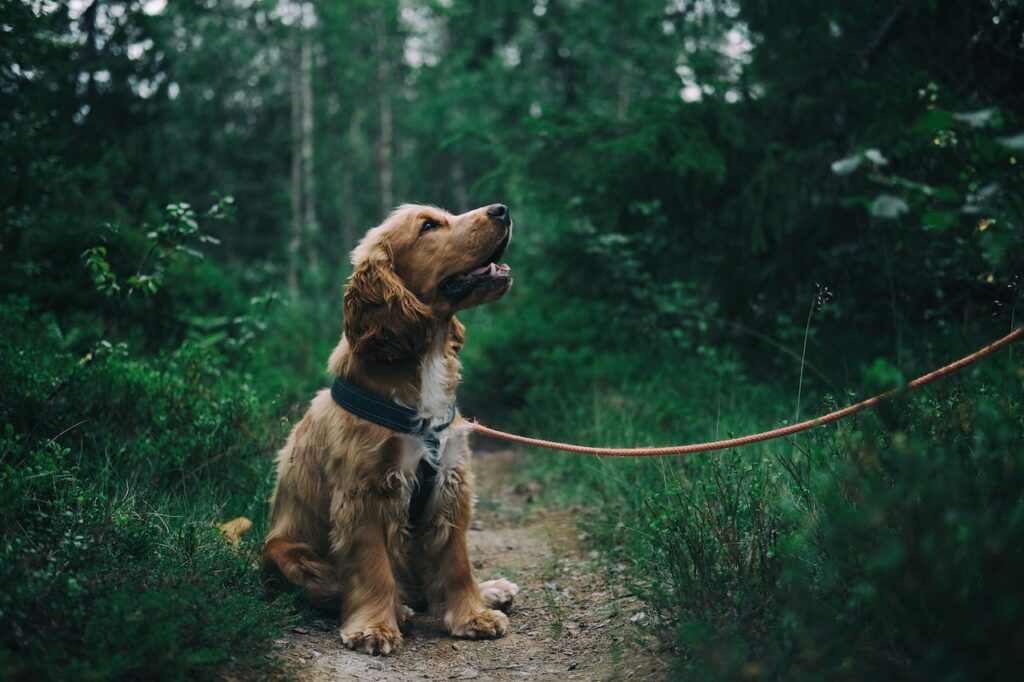When your dog faces an attack from another, it can be a frightening experience. The chaos of teeth, fur, growls, and yelps creates an adrenaline rush, making it challenging to stay calm and think. It’s crucial to maintain composure. A common query to vets online is, “My dog has been bitten , what should I do?” So, here are a few simple tips.
After properly separating the animals, it’s essential to stay calm. If the injuries are severe, quickly head to the vet. Ensure you handle the situation without putting yourself in danger. While a repellent spray might help, it may not work if one dog has latched onto the other and refuses to let go.
Table of Contents

What to do if my dog has been bitten?
If your furry friend gets bitten by another dog, it’s important to act quickly. But don’t worry too much! Stay calm so you can help your dog and make the right choices.
First, take a quick look at the wound if your dog allows it. Is it bleeding a lot? Can you see any obvious injuries?
Even if it doesn’t look too bad, it’s best to go to the vet! Bites on the head, neck, and stomach can be dangerous and need professional care.
At the vet’s office, they will thoroughly check your dog. The vet will clean the wound with a special solution to prevent infection. They will also check for any nerve, muscle, or bone injuries. Sometimes, they might need to do an ultrasound or X-ray to look for internal injuries.
The vet will check if your dog needs stitches depending on how the wound looks. If it’s infected or the tissue is damaged, they might need to remove it under anesthesia. For deep wounds, they could put a drain to remove fluid and bacteria. Smaller, new wounds can be cleaned and stitched or glued.
Your dog could get antibiotics to avoid infections and pain medicine to make them feel better. At home, use a clean bandage to protect the wound.
Your dog needs rest and quiet. A neck brace can help prevent them from licking the wound. Keep an eye on the wound, and if it looks worse, talk to your vet.

How long does it take for a dog bite to heal?
As a dog owner, you might wonder: How long does it take for a dog bite to heal? Well, it varies.
For minor bites without complications, it can be around ten days. If stitches were used, they’re usually removed after this time. Bigger or infected bites needing open healing and bandages take more time.
Deeper injuries take even longer, possibly several weeks to heal completely. Regular visits to the vet are important for prompt and professional treatment, although it can be costly.
Keep an eye on your dog’s wound during the healing time. Less redness, swelling, and warmth are good signs. If you notice more redness, swelling, heat, or pus, see the vet promptly. These signs may mean an infection or other issues needing further treatment.
Do you have to or can you report the dog bite somewhere?
After the initial shock and caring for your four-legged friend, you might wonder, “What can you legally do now?”
Reporting to authorities: When a dog bites another dog, the public order office may not be the right place to go. Typically, they don’t handle dog bites among dogs unless there are specific local regulations. However, if a dog bites a person, reporting to the public order office is appropriate. They might take further measures, such as a character test, to determine if the biting dog is dangerous.

Reporting to the insurance company: What you should do is report the incident to the dog owner’s insurance company. This is crucial for covering veterinary costs or compensation claims. The dog owner’s liability insurance will decide how to proceed.
Local differences: The procedure can vary from state to state and city to city. Some places have specific rules or keep statistics on dog bites, while others don’t.
Can you file a report after your dog has been bitten?
If your dog has been bitten by another dog, you might be considering whether to file a report.
Reporting property damage: A dog bite can be seen as damage to property. You can claim this if your dog is injured by another dog. This involves informing the police and filing a criminal complaint for criminal prosecution.
Civil claims: You can enforce civil claims, such as compensation for veterinary costs, independently of criminal prosecution. No need to file a complaint or report to the police for these claims.
Plain language: Filing a complaint can be a lengthy process with little practical benefit. In many cases, the owner of the aggressive dog might end up with a fine, causing more stress for everyone involved.
Consider interpersonal relationships: If you are friends with the other dog owner or the dogs are well-known in the neighborhood, filing a complaint could strain relationships.

Who pays the veterinary costs?
If your dog is unfortunate enough to be bitten by another dog, one of the most pressing questions is: who will pay the vet costs?
Principle of liability: The dog owner is liable for damage caused by his dog. This liability applies regardless of whether the dog owner was personally present at the time of the incident or not. The term “dog owner” refers to the person who is responsible for the animal and provides ongoing care for it.
If another person was looking after the dog during the incident, they, called the dog supervisor, who might also be responsible.
This compensation claim is meant to pay for the injured party’s costs, such as vet bills for your dog, holding the attacking dog’s owner or guardian responsible for the expenses.
Important procedure: Be sure to get the contact details of the dog owner or guardian after such an incident. Many dog owners have taken out liability insurance for their dogs, which takes effect in such cases.
So, if a dog bites your dog, always check if there’s insurance for the attacking dog and get the details.
To sum it up: The attacking dog’s owner’s insurance typically covers your dog’s vet costs after a bite.
If you don’t have insurance for your dog yet, consider getting one to be protected in case your dog bites!

Special regulation: Contributory negligence for the dog bite
When it comes to the question of contributory negligence in a dog bite, things get legally complicated. However, there is a special rule to consider.
Contributory negligence and its effects: Insurance companies often reduce compensation by highlighting the contributory negligence of the injured dog or its owner. This means your own dog’s “animal nature” is taken into account – for instance, if it barks or defends itself. In practice, this can lead to a liability ratio where only 50% of the veterinary costs are reimbursed.
Exceptions to the rule: There are scenarios where your own dog’s behavior is not considered contributory negligence. For instance, if your dog was unconscious or there’s a significant difference in size and aggressiveness between the dogs involved less or no contributory negligence may be assumed. However, these cases are rare.
Practical example: Picture your dog running off-leash in a park and getting bitten by another dog. In such a case, you might be accused of contributory negligence because your dog wasn’t on a leash. This applies regardless of how the other dog behaves. To stay financially protected in emergencies, consider getting health insurance for your dog to cover veterinary costs.
References: Topdogtips